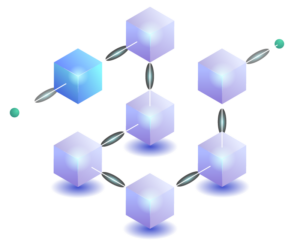Halving
The number of bitcoins generated every block is cut in half every four years, and is referred to as “halving.” Bitcoins have a limited supply making them a scarce digital commodity, as the total amount of bitcoins that will ever be is 21 million. In the beginning, each bitcoin block reward was worth 50 BTC and is halved every 210,000 blocks, which takes place approximately four years. Currently, a block reward is worth 12.5 BTC as already two “halvings” have taken place.
Hard Fork
A change in the rules of the validation process that makes the blocks validated according to the new rules incompatible and invalid, unless all nodes upgrade their software to work with the new rules. It creates a chain split in which an upgrade of the network makes miners and nodes to choose between the upgraded network or the legacy version of the network. Both networks will function separately from there on and will no longer interact with each other. A miner can only use its resources to work on one of the chains, not both. In a hard fork, the history of the blockchain up until that point has been copied and adjusted by the upgraded network, resulting in two different chains and two different cryptocurrencies.
Hardware Wallet
A hardware wallet is a special kind of wallet that keeps the user’s private keys secure. The major advantage over standard software wallets is that the private keys cannot be transferred out of the device in plain text. In this sense, a hardware wallet cannot be hacked like a software wallet can, as they remove the process of having to load the private key in wallet import format to some software which is exposed to online vulnerabilities. These hardware wallets provide another form of cold storage just like a paper wallet.
Hash
The outcome of applying an algorithmic function to information in order to convert them into a random string of numbers and letters. This acts as a digital fingerprint of that information.
Hashgraph Consensus Mechanism
The hashgraph consensus mechanism is based on the use of information about information, called “gossip,” and virtual voting to create consensus in verifying new blocks. The crypto community has yet to widely adopt it.
Hash Function
A mathematical function that collects a group of characters called key, and maps it to a value of a certain length called hash value or hash. The input to the hash function is of arbitrary length but output can only be of fixed length. A small change in the input drastically changes the output.
Hashing
A hash is a function that converts one value to another. It is the procedure of repeatedly inserting a random string of digits into a hashing formula until finding a desirable output.
Hashrate
The speed at which a computer can take any set of information and convert it into letters and numbers of a specific length. Simply put, a hash rate is defined as the speed at which a mining hardware operates. Read more about it in our article.
Hot Wallet
Is a software allowing a cryptocurrency owner to send and receive digital assets. It refers to a wallet that is always directly connected to the internet. Overall, hot wallets are easier to setup, access and usually accept more tokens. However, hot wallets are considered to have lower security than a cold storage system or hardware wallet. When a wallet is online, its data is more vulnerable to hackers and / or malicious entities.
Hyperledger
An umbrella project set up by the Linux Foundation providing an array of tools and systems for building open-source blockchains. Hyperledger is an open-source collaborative effort with the aim to advance cross-industry blockchain technologies. It is a platform that unifies companies and developers to coordinate and construct blockchain frameworks throughout several industries. The Hyperledger initiative has over 100 members, including companies like IBM, Wells Fargo, Samsung, American Express and BNP Paribas.
Hyperledger Fabric
Launched by Linux in 2015, Hyperledger Fabric is an open-source enterprise-grade private permissioned
blockchain. It was designed by IBM for industrial enterprise use and has features for faster transactions, smart contract technology and streamlined data sharing, in particular.
Hyperledger Iroha
Hyperledger Iroha is a platform of business blockchain frameworks intended to support infrastructure projects that require blockchain technology. Notably, its capabilities include the potential to build an identity management system, as well as software apps that can help unbanked people have access to financial services.




